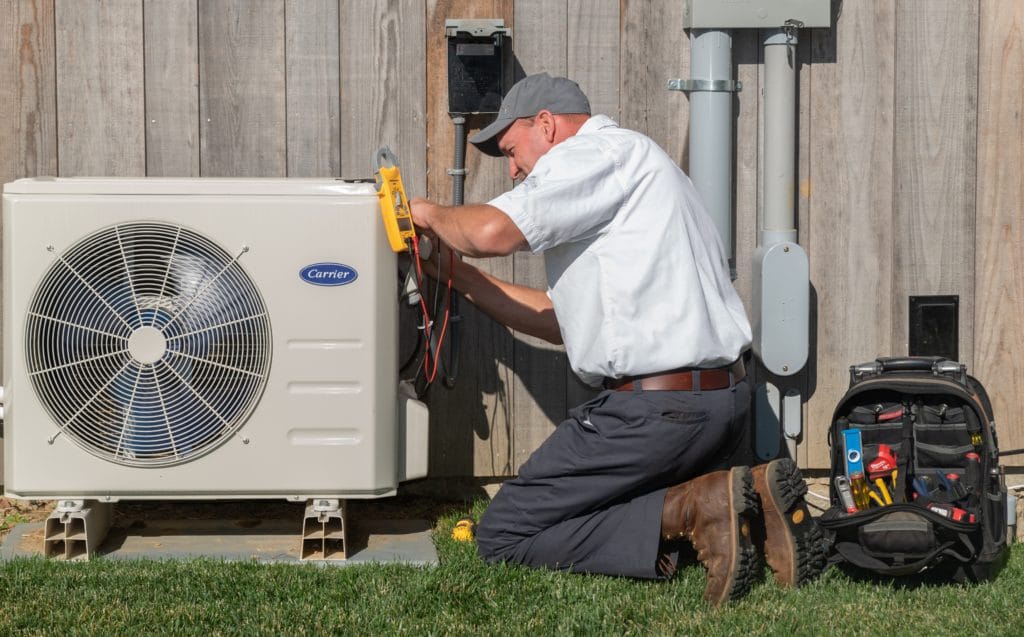When your heating and cooling system is not working as expected, you want relief from uncomfortable temperatures as quickly as possible. During a service call, it’s important to provide your HVAC contractor with detailed information about your system. Doing so will help reduce the time they need to correct the issue. Here are some helpful details to provide during your next service call.
1. Age and Model of Your HVAC System
Some HVAC models require different tools and components than others. Sharing the model of your system upfront helps your technician prepare the right equipment. Knowing the age of the system will also help them diagnose the issue in a shorter amount of time. A five-year-old HVAC unit may experience different problems than a unit that is 10 years or older.
Learn more about HVAC repair and service from RSC.
2. Filter Size and Type
Regularly switching out the air filter is one of the most important tasks for maintaining optimal HVAC function. Let your contractor know what type of filter you need so they can bring a replacement.
If you are not sure what filter you need, open the filter door of your unit. The correct filter size will be printed on the filter. If it is not printed on the filter, remove the filter and take a measurement. The most common HVAC filter sizes are 16 x 20, 20 x 25, and 16 x 25 inches, with thickness ranging between one to five inches.
HVAC filters also vary in terms of efficiency, measured by the MERV rating system. While MERV 8 filters are sufficient for families, households with residents that have asthma or allergies may want to consider a MERV 11 or higher filters.
3. Occurrence and Frequency of Issues
These are arguably the most important details to provide your HVAC service provider. This information helps them identify the issue as quickly as possible and provide potential resolutions. Helpful details to share include:
- When did the system stop working as expected?
- Does the problem come and go? Or has the HVAC unit completely stopped functioning?
- Has this particular issue occurred in the past?

4. Unexpected Sounds or Odors
You should also share if you’ve noticed any abnormal sounds or odors coming from your heating and cooling system. Some odors to be aware of include:
- A burning smell, which often indicates that the system is overheating, sometimes due to an electrical issue.
- A gas or oil smell, which could indicate a leak. This may also smell like a rotten egg. If you notice this, contact your gas utility and your service provider right away.
- A moldy smell, which often indicates moisture accumulation within your AC unit.
5. Most Recent Service Call
Regular maintenance and care help keep your HVAC system in good working condition. Let your technician know the last time you had your unit serviced, as well as the work or repairs completed. This information will help them better understand whether the issue is recurring and recommend long-term solutions.
If you are receiving service for your HVAC system, you likely want the process to be completed as soon as possible. No one wants to have an uncomfortable indoor environment longer than they have to. Providing information to your HVAC contractor can help them quickly find the issue and correct it. The next time you receive service, share these details with your technician.
Need service or repair for your HVAC system? RSC Heating & Air is here to help. Our team has decades of experience helping homeowners in central Pennsylvania with all of their HVAC needs. Schedule your HVAC service today or call (717) 299-3914 to learn more.




